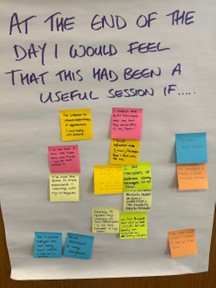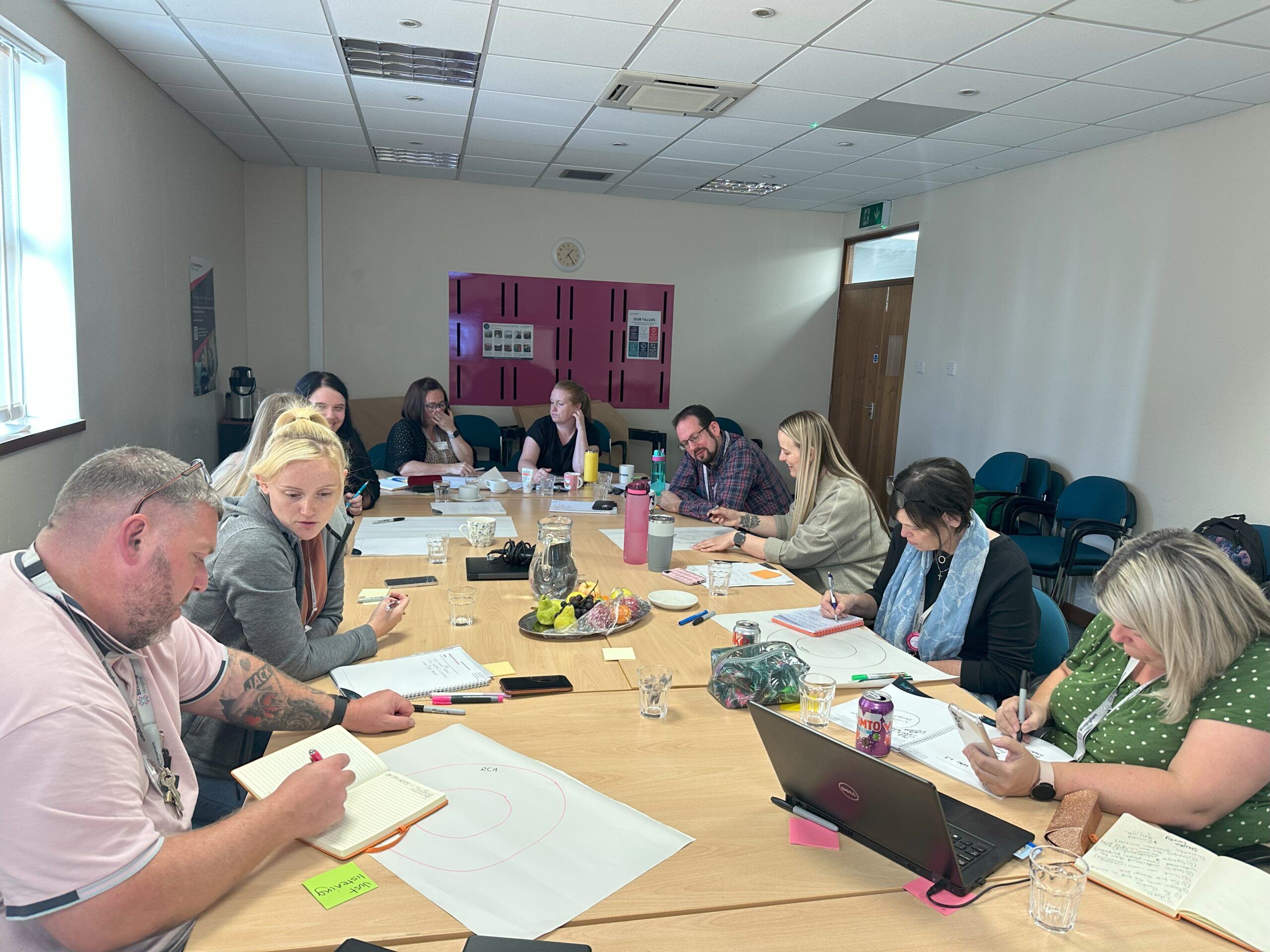Birmingham Hospice delivers expert palliative and end-of-life care to more than 1,000 individuals every day across Birmingham. The work is emotionally demanding and complex, requiring people managers to lead with compassion, clarity, and resilience in high-pressure healthcare environments.
Over the past few years, we’ve partnered with Birmingham Hospice to support over 30 people managers through our CAPE Management Programme. These leaders span both clinical and non-clinical teams, holding significant responsibility for care delivery, staff wellbeing, and organisational culture.
Recognising that leadership development is not a one-off event, the hospice team invited us back to run two full-day Catalyst workshops. These sessions created space for people managers to reconnect with their learning, reflect on their leadership journey, and refocus on what matters most.
Our approach: leadership development for healthcare professionals
Ahead of the workshops, each manager:
- Completed a reflective questionnaire about their growth and challenges
- Held a 1:1 conversation with their line manager to review development
- Watched a short recap video revisiting CAPE tools and focus areas
The full-day leadership refreshers focused on three outcomes:
- Explore what’s working well and the impact of effective leadership
- Surface barriers to high performance and leadership confidence
- Develop a practical, personalised leadership development plan
The sessions included:
- A deep dive into four key areas of effective people management
- Peer discussions on what feels most difficult to demonstrate consistently
- Exploration of competing commitments and what gets in the way
- Toolkit refreshers and time to design an action plan with peer support

What we heard: themes from the healthcare leadership context
From their pre-work reflections, managers reported:
- Increased confidence in coaching and empowering teams
- Better communication and clarity, enabling stronger team dynamics
- A shift from advising to enabling greater team ownership
They also highlighted common barriers:
- Time pressures, firefighting and operational overload
- Difficulty maintaining leadership focus alongside daily demands
- Balancing team needs with strategic planning and resilience
Managers identified clear areas for continued development, including conflict management, intentional planning, performance conversations, and embedding new leadership habits.
The impact: confident, connected healthcare managers
By the end of the day, managers reported a renewed sense of energy and clarity. In their own words, they felt:
“Supported” | “Hopeful” | “Refreshed” | “Motivated” | “Clearer” | “Reminded of the benefits”
There was also a strong commitment to supporting each other going forward:
- Setting up coaching and learning partnerships
- Creating peer surgeries for challenge-sharing and co-coaching
- Continuing development conversations with line managers
Sustaining leadership capability in healthcare
In purpose-led environments like Birmingham Hospice, managers are often stretched thin between frontline delivery, culture, and performance. That’s why leadership development in healthcare must be ongoing, practical, and grounded in real-life demands.
These Catalyst workshops gave Birmingham Hospice managers the rare space to pause, reflect and reconnect with their leadership purpose. We’re proud to support this incredible organisation and look forward to seeing the ripple effect in patient care, team wellbeing, and organisational performance.
Want to find out more about how we could do the same for your organisation? Let’s start a conversation








